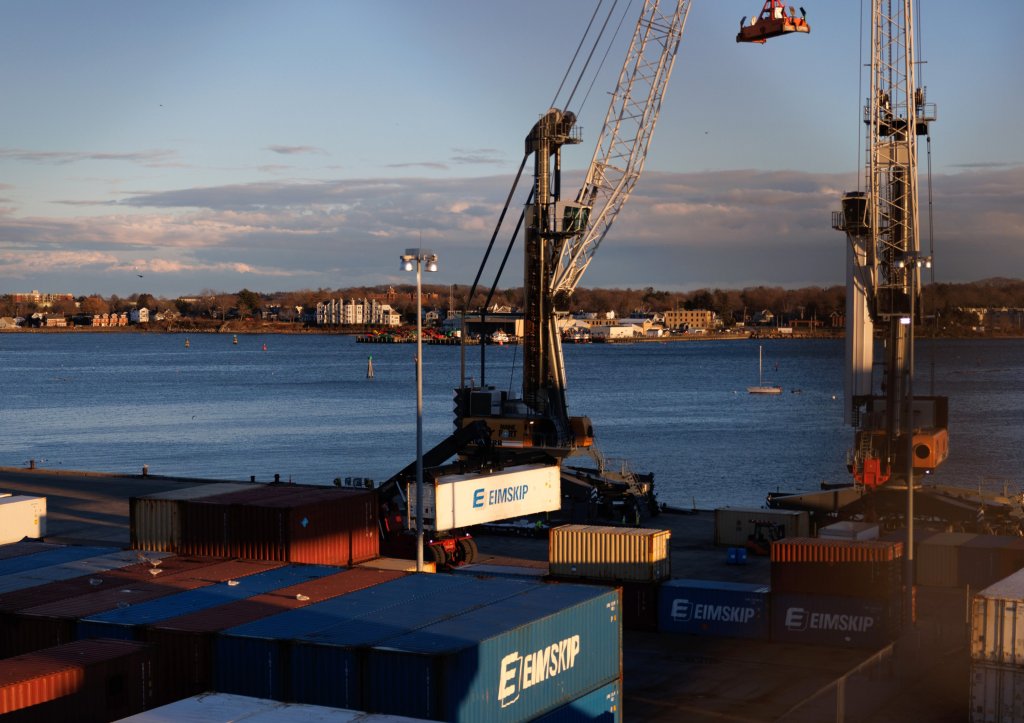
Shipping containers are moved at Eimskip in Portland in January 2024. (Brianna Soukup/Staff Photographer)
TORONTO — Canada is dropping retaliatory tariffs to match U.S. tariff exemptions for goods covered under the United States-Mexico-Canada trade pact, a government official familiar with the matter said Friday. The move will remove tariffs on the majority of goods Maine sends to Canada, its biggest trading partner.
The official said Canada will include the carve-out that the U.S. has on Canadian goods under the 2020 free trade deal that shields the vast majority of goods from the punishing duties.
The official spoke on condition of anonymity because they were not authorized to speak publicly ahead of an expected announcement by Canadian Prime Minister Mark Carney
The official said the move is designed to reset trade talks between the two countries. The USMCA is up for review in 2026, and the official called the trade pact a unique advantage for Canada at a time when it is clear that the U.S. is charging for access to its market.
Carney has previously said that the commitment of the U.S. to the core of USMCA means the U.S. average tariff rate on Canadian goods remains one of its lowest, and that over 85% of Canada-U.S. trade continues to be free of tariffs.
Canadian and Mexican companies can claim preferential treatment under the USMCA.
Former Prime Minister Justin Trudeau initially put on retaliatory tariffs in response to U.S. tariffs, but before the U.S. tariffs were applied the Trump administration exempted goods covered by the free trade deal.
Most imports from Canada and Mexico are still protected by the USMCA, but U.S. Commerce Secretary Howard Lutnick has said, “I think the president is absolutely going to renegotiate USMCA.”
Preserving the free trade pact will be critical for Canada and Mexico. More than 75% of Canada’s exports go to the U.S. while more than 80% of Mexico’s exports go there.
Trump has announced some sector specific-tariffs that do apply for Canada despite the USMCA — known as 232 tariffs — which are having an impact on the Canadian economy. There is a 50% tariff on steel and aluminum imports, for example.
We invite you to add your comments. We encourage a thoughtful exchange of ideas and information on this website. By joining the conversation, you are agreeing to our commenting policy and terms of use. More information is found on our FAQs. You can modify your screen name here.
Comments are managed by our staff during regular business hours Monday through Friday as well as limited hours on Saturday and Sunday. Comments held for moderation outside of those hours may take longer to approve.
Join the Conversation
Please sign into your CentralMaine.com account to participate in conversations below. If you do not have an account, you can register or subscribe. Questions? Please see our FAQs.